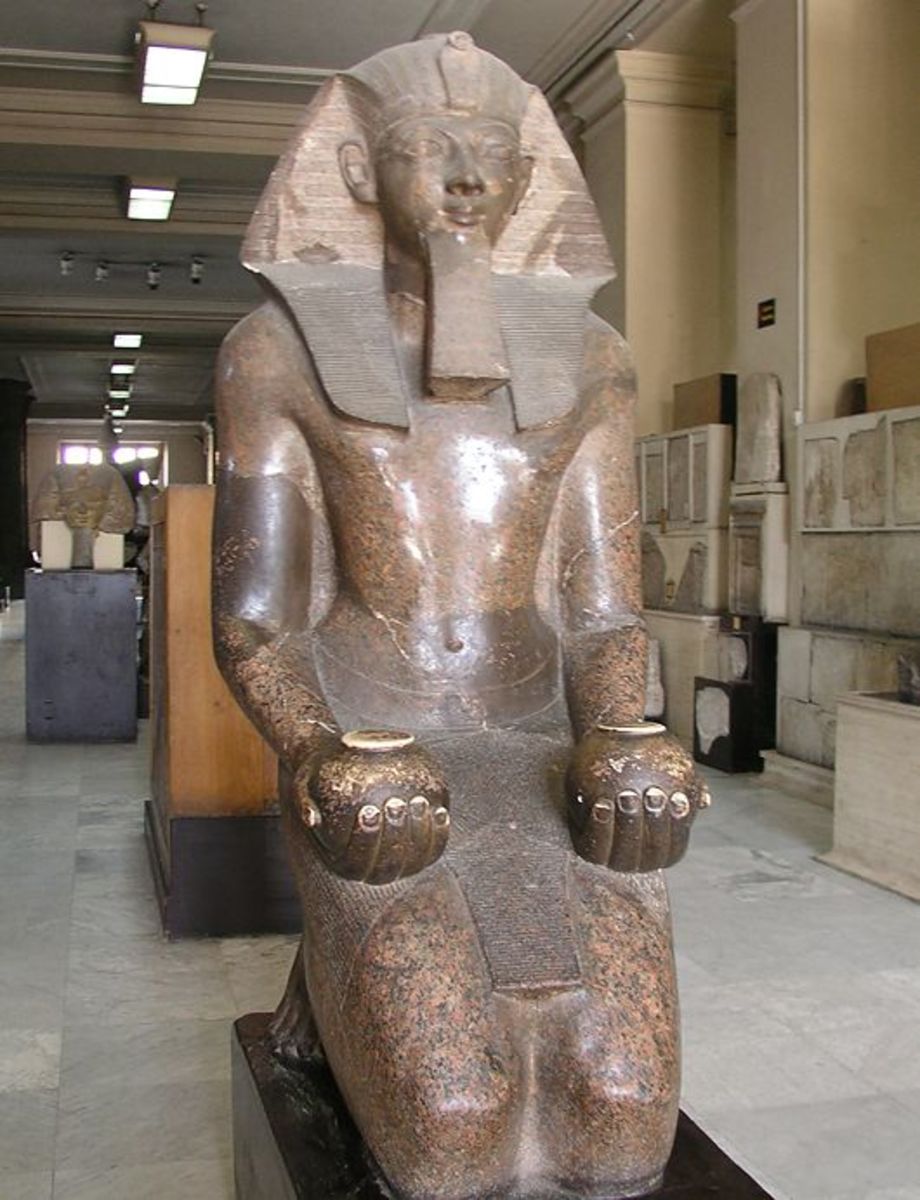The Future of Egypt after Hosni Mubarak : Democracy, Military or Sharia
Democracy, Military or Sharia : Where is Egypt headed ?

FUTURE OF MIDDLE EAST
The exit of Hosni Mubarak has opened a Pandora’s Box of possibilities and probabilities about the future of Egypt. There are many contenders of power, with their own strengths, weaknesses, agenda and strategies. How they play their cards and how they make the best of the opportunities that come their way will decide the final outcome.
The struggle in future is going to be a trangular one ......
Omar Suleman : A transitional authority
As Hosni Mubarak leaves Egypt, speculation has already begun as to who will succeed the Octogenarian dictator, who kept all other contenders under submission for three decades.
For the time being, it is going to be Omar Suleman, the recently appointed Vice President and a very close aide of Hosni Mubarak, who holds power. The former chief of Intelligence, Suleman is considered too close to the ousted Mubarak to be accepted by the people of Egypt. The fact that he has been speaking the voice of his mentor ever since his elevation, including ruling out the removal of emergency law of Egypt, are unlikely to make him the Darling of the protesting masses. It is difficult to say what may happen to him, but it seems unlikely that he will be able to cling on to his current authority for too long.
One must not forget that Hosni Mubarak himself had landed with power in a somewhat similar development. Many call him “an accident of history” and yet he lasted three decades. However, the circumstances in which Suleman has taken over are very different. It is unlikely that he will be allowed to retain his position. In fact the only way he can continue in power is if all the other stake-holders neutralise each other in a perfect stalemate – a probability that may be too small to be taken seriously.
Other interesting Hubs...
- The Invisible Hand that Guides the Market
Adam Smith gave the theory about market efficiency at a time when demand and supply were not exactly common in our language. His descriptions remain the cornerstone of modern economics. - Two Bullets that Changed the History of the World
The story of an assassination that precipitated one of the worst chain of conflict and destruction ever witnessed by humankind. It is a story of two Bullets which thrust the First World War on the world.
The Alternatives: Democracy, Military or Sharia
In many ways, the recent protests in Egypt were a spontaneous public reaction to a dictatorship that they began to blame for all their ills, especially the economic downturns. Yet there is no doubt that political opposition as well as Muslim brotherhood played a crucial role in inflaming their sentiment and fuelling the mass protests. It is also true that these protests could not have succeeded in ousting Hosni Mubarak without the support of the Military.
The Political opposition of Egypt is currently headed by the Western poster boy, Mohamed Al Baredi, a Nobel laureate and former Chief of International Atomic Energy Agency. In a recent interview with New York Times, Al Baredi expressed his belief that democracy will take firm roots in Egypt now. A Committee involving representatives of Military, Opposition and Omar Suleman may also get formed to bring about adequate Constitutional changes. The political opposition has been at the forefront of the protests and hence leads in terms of public acceptability at this stage. Its support of Democracy also makes it a comfortable alternative for United States led Western alliance.
The Military has played a crucial role in the final exit of Hosni Mubarak, especially after he declined to step down two days back. It is right now headed by Lt. General Sami Hafiz Enan, who was accidentally in the United States, leading a top level delegation for an Army to Army meeting, when the protests actually began. More interestingly, immediate after his return, he visited the Tahir square to meet the protestors and assured his support for them. There are some reports indicating that Sami and the Army that he heads had not been very happy with the resource cuts that the Army was recently facing due to economic downturn. There are two aspects of Egyptian Army with a strength of over 460 thousand, which may prove to be crucial in the final outcome. First is the economic empire that the Army controls in Egypt. The Army production units account for something between five to ten percent of GDP of Egypt, and peace and stability are central to the economic health of this empire, which is controlled by the Generals. Second, Sami and many other top Generals of his generation have been trained in United States and have their contacts there. The role of the Army came in for appreciation from the American President wherein he hailed the peaceful campaign of Egyptian protestors after Mubarak stepped down.
However, while masses, opposition and Military have all been instrumental in the exit of Mubarak, the greatest gainer from these events is the Muslim Brotherhood. It has played a crucial role in backing the protestors. The role of religious preachers in the uprising should not be undermined. The Daily News of Egypt reports that in Alexandria, thousands took to street after the Friday prayers, in response to the appeal that Sheikh Ahmed Al-Mahalawi made during the prayers, asking the protesting people not to back down. Muslim Brotherhood, which has been banned and persecuted for last thirty years, has finally returned to the mainstream. It is still not putting all its cards on the table. Essam El-Errian, a member of the Muslim brotherhood, while writing about their views on democracy wrote that the Islamists are not against democracy, but at the same time they do not accept Western styled secular democracy as the right model for Egypt. In all probability, given the public sentiment against authoritarian regimes, the Islamists will not oppose democracy, but they will most definitely demand a greater reliance on Islam in Constitution as well as State – a demand that is likely to have huge public support in Egypt today.
Future of Egypt
The Future of Egypt: At the Crossroads
While it may be difficult to predict the direction in which the pendulum of power will shift, one can be pretty sure about who will be main stakeholders of power in Egypt in the coming years. Right now, the titular head is Omar Suleman, but the real power is actually held by the Military, because it is the most organised among the contenders. The political opposition has the greater public acceptance, as well as the best faces to put forward right now, and they will more or less definitely be a part of whatever formal Government comes in to existence, with or without constitutional reforms. However, the economic problems that precipitated the revolt against Mubarak have not disappeared, and will resurface again, and how the current opposition is able to tackle it, when in power, will largely decide not only its own future, but also the fate of the fragile democracy that may get introduced in Egypt. Muslim brotherhood is the dark horse in this race. It will slowly push its objectives of Islamisation of society and Government in Egypt, and try to ride over future discontent of people with democratic institutions to push its own agenda.
How the interplay of all these forces works out will decide the future of Egypt after Mubarak.
The American Dilemma
The dilemma of the United States lies largely in its dual standard policy of promoting democracy and supporting dictatorships. It stands to lose significantly by the exit of Hosni Mubarak, as the former President had been the strongest US ally in the Middle East, and had kept anti-Israel sentiment in the Arab world consistently under check. Assuming some sort of democracy returns to Egypt, the support for United States is going to largely disappear, as few political leaders will take the risk of openly siding with the US interests and ideologies.
While President Obama calls the people of Egypt to work for a democracy, ironically the democratic chaos may be the greatest danger to US interests in the region. Once leaders compete in a democracy, it is going to be just a matter of time before Islamists begin their campaign for including the principles of Sharia in the Government. Once that process begins, it will be difficult to say where it will end. Silencing Muslim Brotherhood in a democracy is going to be virtually impossible for any democratically elected Government in Egypt, even if the United States is able to somehow retain the full support of its leaders.
© 2011 V Kumar








